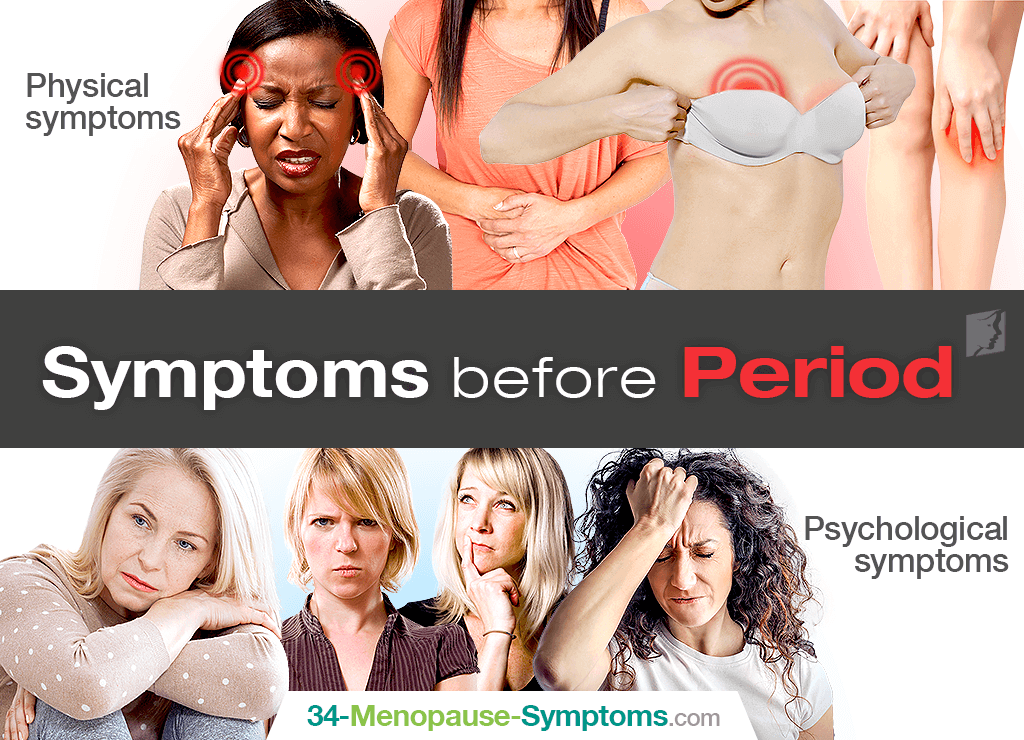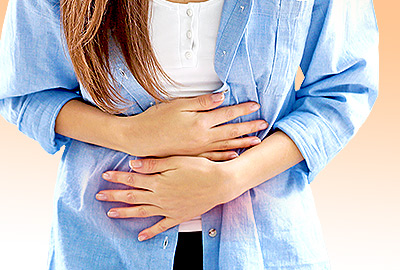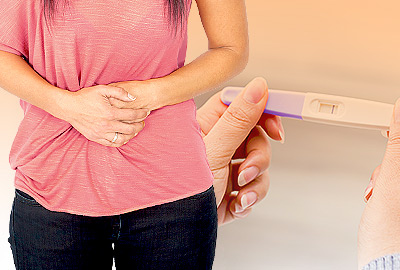Period symptoms that appear before menstruation are commonly referred to as premenstrual syndrome (PMS) symptoms. This term is universal for women of all reproductive stages, from puberty until menopause. Discover important information regarding menstrual signs and symptoms before a period in order to better understand exactly what is going on in your body.
List of Symptoms Before Period
PMS symptoms can occur up to two weeks before menstruation. Some of the most common symptoms of getting your period include, but are not limited to:
Physical Symptoms
- Insomnia
- Change in libido
- Headaches
- Fatigue
- Abdominal cramps
- Bloating
- Breast tenderness
- Constipation or diarrhea
- Joint or muscle pain
- Acne
Psychological Symptoms
- Anxiety
- Depressed mood
- Poor concentration
- Mood swings
- Food cravings
- Increased tension
- Irritability
- Anger
These symptoms generally improve when your period is about to start and disappear soon after the start of menses.
Signs of Menstruation
Unlike most other hormonal conditions, there are no lab tests or physical findings that a doctor can use to diagnose the signs of your period. Aforementioned symptoms will be attributed to PMS if there is a pattern of their occurrence around the time of menstruation, and you have no other health conditions that could be causing them.
Difference between Perimenopause and Period Symptoms?
When it comes to PMS and perimenopause symptoms, the difference is all in the timing. Both are caused by fluctuating hormones, but they occur at specific stages in a woman's life.
As aforementioned, symptoms of a period can begin up to two weeks before menses and last until a day or two into menstruation. On the other hand, perimenopause symptoms start to occur in a woman's mid-40s or - in some cases - even late 30s and can last up to a decade before the menopause date. On average, a woman reaches menopause at age 51.
When Should I Be Concerned?
There is no need for concern once beginning the menopausal transition. It is a natural progression toward the end of reproductive years that every woman experiences.
One of the first and most experienced symptoms of perimenopause are irregular periods. These menstrual abnormalities may be accompanied by PMS-like symptoms. However, women may also start to experience other menopause symptoms alongside the irregular periods. These include hot flashes, night sweats, vaginal dryness, and many more.
Nevertheless, if entrance into the menopausal transition is suspected, there are various options available to treat irregular periods. They include incorporating a healthy diet rich in phytoestrogens; regular exercise and stress relief techniques, like yoga; and alternative medicine, like hormone-regulating supplements, into your lifestyle. There are also a variety of other natural choices, such as these five best home remedies for irregular periods.
Overall, whether from a period or perimenopause, with proper management, it is possible to handle any symptoms so that they do not become a burden in your life.
Sources
- Ahuja, M. (2016). Age of menopause and determinants of menopause age: A PAN India survey by IMS. Journal of Mid-Life Health, 7(3), 126-131. doi: 10.4103/0976-7800.191012
- Mayo Clinic. (2018). Premenstrual syndrome (PMS) | Perimenopause. Retrieved August 14, 2018, from https://www.mayoclinic.org/diseases-conditions/premenstrual-syndrome/symptoms-causes/syc-20376780 | https://www.mayoclinic.org/diseases-conditions/perimenopause/symptoms-causes/syc-20354666
- NHS. (2016). Overview: Periods | Overview: Menopause. Retrieved August 14, 2018, from https://www.nhs.uk/conditions/periods/ | https://www.nhs.uk/conditions/menopause/




